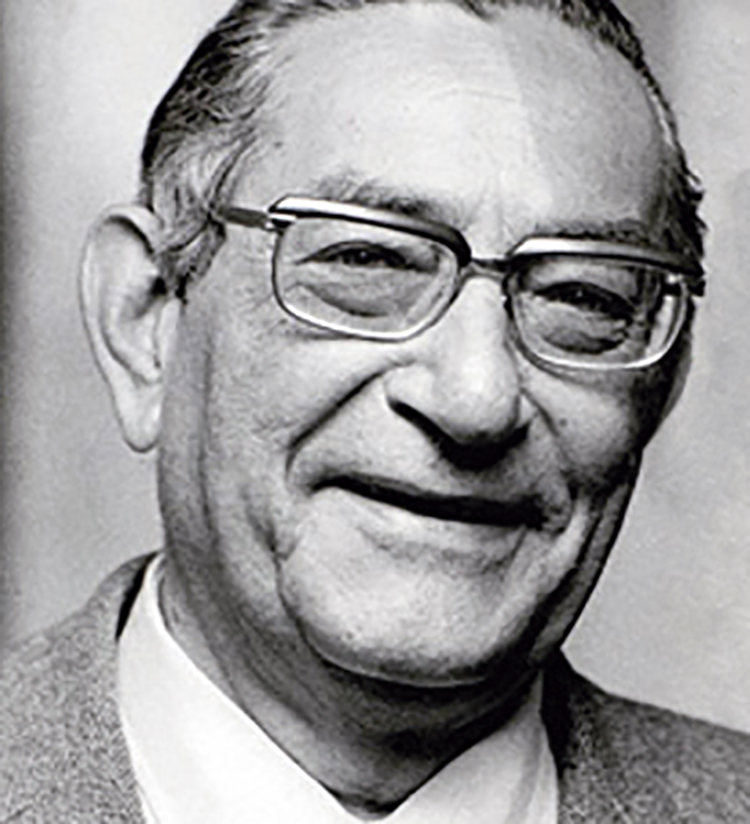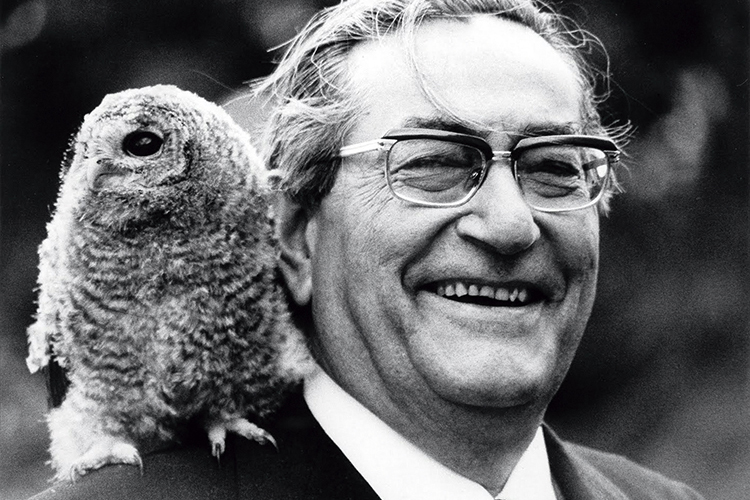There are many aspects of Luis Rosales' literary work that have always attracted my attention, among others his persistence in the correct use of language, understood as a means of communication and as a system of vital installation, or his intelligent capacity to transform reality into evocative poetic words, brilliantly perceptible, and a copious flow of inspiration. However, none more attractive to me than his enormous ease in bringing out the best face of reality, that of joy.
From that verse of his: "life is a free miracle", one knows that his poetry is reliable, that, from the certainty of what is real, one can achieve surprising and memorable texts, like the ones he writes.
Titles such as The lighted house, The heart's content o Diary of a resurrection already outlines the master lines of his creative approach, which always springs from the light provided by life itself. Any event, any minute detail, any approach to his own existence is poetizable material for him, especially when, as he himself has said, "it only illuminates the best in us".
If we trace his poetic work, we can say of Rosales that is a poet open to joy, understood above all as a gift and as the direct consequence of having been created by God. It could not be otherwise for him: man, made in the image and likeness of his Maker, must reflect not only his goodness, or his beauty, or his truth, or his uniqueness, but his joy. God is in himself joy to the fullest degree. But this joy is not something isolated, but rather, as St. Josemaría Escrivá would say, "has its roots in the form of a cross".
Thus, in any approach to the lyrical trajectory of the poet from Granada, it is essential to delve into the pain-joy interaction, which is the solid basis of his thought and metaphysics, without insisting on one aspect more than the other because both reflect the same inner fire. Many of his micropoems -those are quite a few of his verses: aphorisms or sparks with their own autonomy- show it. In fact, Rosales himself states that "people who do not know pain are like unblessed churches/ like a bit of sand that dreamed of being a beach/ like a bit of sea" because "pain is the law of gravity of the soul,/ it comes to us illuminating us, spelling our bones.". He was the protagonist of this experience following the death of three of his siblings, after his mother - the starting point for the writing of The lighted house- and, finally, of his father, apart from the one he also experienced after the death of some indisputable close friends (Juan Panero, among others).


"Every pain" -he insists. "it makes us know the world anew, each new pain is a dazzling of the truth". And it is in that enclave where the importance of joy becomes apparent, he says: "Watch over your joy, and the rest will be given to you as well. Watch your joy, but do not go in search of it. It is not necessary. When the vital impulse is slowing down with the years, it is necessary to learn to live."This is an indispensable requisite for maintaining the state of peace and serenity of mind that the passage of time demands. If the supernatural sense of suffering is lost -it is often expressed in one way or another- joy ceases to bear fruit. The two, I say, go hand in hand. In fact, the two go hand in hand, "when they hit rock bottom, they always confuse sorrow and joy".
What Rosales sometimes calls "the circles of weeping". is what clarifies, without a doubt, the mystery of human existence and, therefore, that of joy. But, at this point, what is pain? It says it very clearly: "is the flame of Your Visitation"In other words, a manifestation of God, of his nearness, of his presence; a realization that we are in his hands and that we are a faithful reflection of his will, in other words: "a long journey, / is a long journey that always brings us closer, / that leads us to the country where all men are equal; / just like the word God, its happening has no birth, / but revelation, / just like the word God, it makes us of wood to burn us.".
For sure, at this point, one gets the feeling that that firm and coherent Catholicism that Rosales always showed, now emerges more eloquently than ever before.On the one hand, it gives meaning to the equalization or fraternity of human beings, which will be so important in his ultimate poetry, of cosmopolitan character, with a common father, God; on the other, it reflects what we have traditionally understood as "conversion of the heart" (the latter, by the way, a very Rosales word): man needs to allow himself to be cauterized by the divine word. If the poet demands something of himself, it is his own inner transformation, under the protection of divine mercy, of which all individuals are in need. In a long poem "confessional and orational at the same time, a poem of existential recapitulation."as described by Luis Felipe Vivanco, titled ".Mercy"He develops this ascensional path to the love of God the Father, and he undertakes it from tears, from the skin of astonishment that reflects suffering, with the full confidence that its fruit is jubilation and joy.Today that begins / this ascension silenced by the fever of astonishment; / tell me, tell me, Lord, what is this joy of mine, / why does my voice taste like wood when I name you, / [...] / what kind of burning vision do we call love, / hasn't the night arrived where everything comes together, / may your will be done in me, my God".
Undoubtedly, light and all the possible vocabulary within the semantic field of luminescence (lit, fire, burning...) will serve our poet as a guiding thread to unravel the course of his poetic discourse: that joy is the direct consequence of the acceptance of pain: "it should only matter to you / to distinguish clearly between having satisfactions and having joys / this is the key to living."The learning process, which is acquired over the years but has its origins in "the filial memory we still have of God", that is to say, in the proclamation of knowing that we are his children. To assume it, nothing more necessary than to exercise patience, as he announces in one of his compositions: "waiting is part of the joy"and ends up qualifying: "of that sober joy that does not disturb or offend". If in a celebrated sonnet, José Hierro, a poet close in time to Rosales, says, without room for qualification, that he arrived at joy through pain, our author does not fall short in this sense: for him, the world that surrounds him bears the implicit imprint of pain, but this, instead of being an obstacle, is the enriching sap of the human being, a joyful song that generates optimism, an evident proof that, just as the house of his long poem ends illuminated, so does his spirit, in full readiness to welcome whatever comes his way, leaving us proof that his poetry, as a whole, is a genuine reference of the most fertile and radiant religious poetry of the 20th century.













